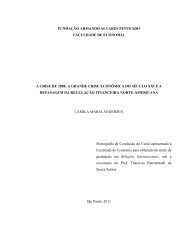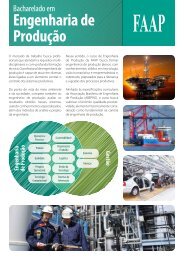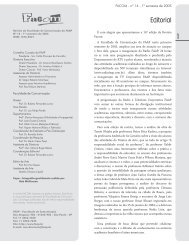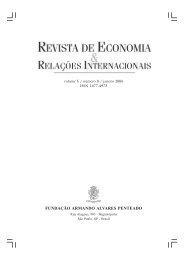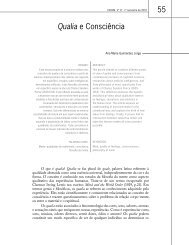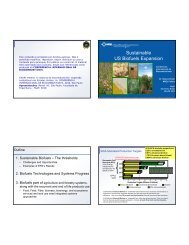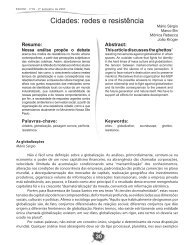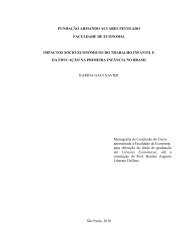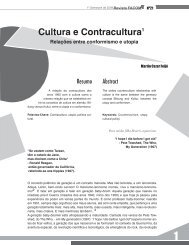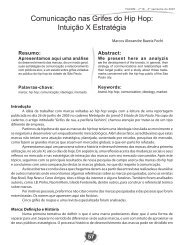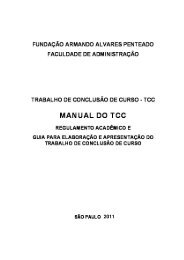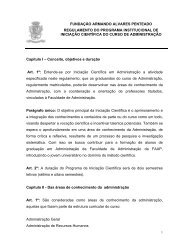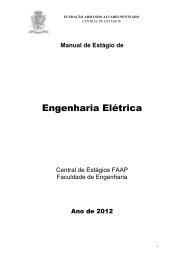Edição Especial - Faap
Edição Especial - Faap
Edição Especial - Faap
Create successful ePaper yourself
Turn your PDF publications into a flip-book with our unique Google optimized e-Paper software.
Argentina’s debt exchange – a<br />
new paradigm? A review of<br />
systemic implications<br />
Daniel Marx*<br />
Abstract: Argentina sovereign debt exchange certainly caught any<br />
observer’s attention because of its size, the implicit amount of<br />
reduction involved and the scope of debt instrument included.<br />
Circumstances have been changing slowly but steadily in a way that<br />
several modalities that we had seen in the previous decades were no<br />
longer practical. Because of that, the characteristics of the Argentine<br />
exchange are indicative for some people of a change of paradigm. The<br />
intention of this article is to focus on more systemic issues, relevant for<br />
the analysis of the repercussions of this transaction. The first topic is<br />
referred to the role of the international financing organizations. A<br />
second issue is referred to the change in the definition of eligible debt.<br />
A third systemic issue that is worthwhile revisiting is the understanding<br />
of different creditor protection features. Sovereign defaulted debt<br />
resolution process or the lack of it when bonded debt is prevalent is a<br />
fourth issue to be discussed. Finally, another aspect that merits review<br />
is the functioning of financial markets. The resulting challenge is how<br />
to set up an agenda that incorporates the repercussions of<br />
technological changes as well as international understandings in the<br />
patterns of behavior that would reduce systemic risk.<br />
Key words: Sovereign debt resolution, exchange, Argentina, systemic,<br />
IMF, eligible debt, financial markets.<br />
Argentina recently completed sovereign debt exchange certainly caught<br />
any observer’s attention because of its size, the implicit amount of reduction<br />
involved, the scope of debt instrument included, and other features that were<br />
covered by the media.<br />
My intention is to focus on more systemic issues, which I think are highly<br />
relevant in the analysis of the repercussions of this same transaction. Several of<br />
them indicate quite a departure from precedents observed over the last several<br />
years. I would argue that, circumstances have been changing slowly but steadily<br />
in a way that several modalities that we had seen in the previous decades were<br />
no longer practical. Because of that, the characteristics of the Argentine<br />
exchange are indicative for some people of a change of paradigm, but in fact,<br />
* Daniel Marx is currently a partner of AGM, a Financial Advisory firm based in Argentina. From 1999<br />
until early December, 2001 was Secretary of Finance of the Ministry of the Economy of Argentina<br />
overseeing the Public Credit Office and the Financial Services Department. Before that, he was<br />
Undersecretary and Chief Debt Negotiator for Argentina in charge of the Brady deal negotiations, the<br />
reintroduction of Argentina into the Capital Markets and public sale of state companies being privatized.<br />
Previously he was also Director of the Central Bank of Argentina.<br />
Argentina’s debt exchange - new paradigm?..., Daniel Marx, p. 157-161<br />
157




